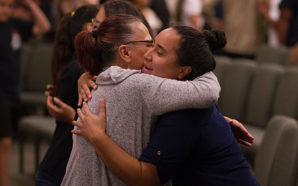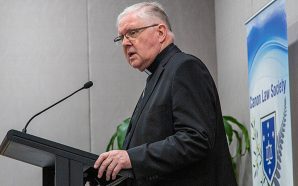Weekly Column from the Executive Director of Schools, Diocese of Parramatta
In life, there are always those who try to get an advantage when they are not entitled to it. In days gone by, students wrote answers to possible exam questions on the palm of their hand; today, technology is used for the same purpose. Recent media reports suggest that some students (and parents?) are willing to fork out big dollars for others to complete assignments and HSC work.
It is worth exploring why some students feel the need to seek out an unfair advantage in their tests and assessments. Cheating is wrong regardless of the form it takes, but I would argue that a using one-size-fits-all approach to school assessments that advantages some students over others, and measures success by ranking students against each other creates the atmosphere where cheating is more likely to occur. Narrow assessments do little to help the learner or improve their learning. Just look at the stories that emerge around NAPLAN and HSC time and the fear and anxiety these high stakes tests generate!
It seems that we have conditioned students, parents and politicians to place more value in scores and ranking than on the value of learning. How has it come to this?
Sadly, we have created environments where the ultimate pursuit for students is not following passions or attaining knowledge and wisdom. It has become about choosing subjects that will get them better grades or a better ATAR.
Once they have left school, most young people will never again be have to measure what they know and understand by the kind of tests that they did at school. Beyond the classroom, the skills that will provide them with the opportunities to live out their dreams will be ones like collaboration, creativity, communication and old fashioned grit. How well schools teach these skills will depend ultimately on how well they can assess them.
We need to rethink the role of assessment. If assessments are going to be meaningful, they have to be more than a grade or a mark. Giving meaningful feedback to students that motivates them to take greater control of their learning should also be part of the assessment process.
No one has a right to cheat but relying on assessments that are predictable, narrow and pitch students against each other is cheating many of the opportunity to do more and be more.
Greg Whitby
Executive Director of Schools – Diocese of Parramatta







